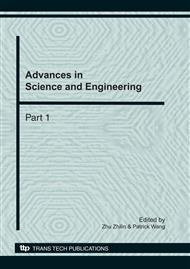p.388
p.392
p.398
p.404
p.410
p.419
p.425
p.430
p.433
Engineering-Oriented Hybrid Genetic Algorithm for Frequency Assignment Problem
Abstract:
Since the usable range of the frequency spectrum is limited, the frequency assignment problem (FAP) is important in mobile telephone communication. In this paper, according to the characteristics of engineering- oriented FAP, an engineering-oriented hybrid genetic algorithm (EHGA) based on traditional genetic algorithm (TGA) is proposed, combined with particle swarm optimization (PSO) and simulated annealing (SA). The results obtained by the simulation to a real-word FAP case in GSM show that the algorithm we proposed is a better approach to solve the engineering-oriented FAP.
Info:
Periodical:
Pages:
410-418
DOI:
Citation:
Online since:
November 2010
Authors:
Price:
Сopyright:
© 2011 Trans Tech Publications Ltd. All Rights Reserved
Share:
Citation:


